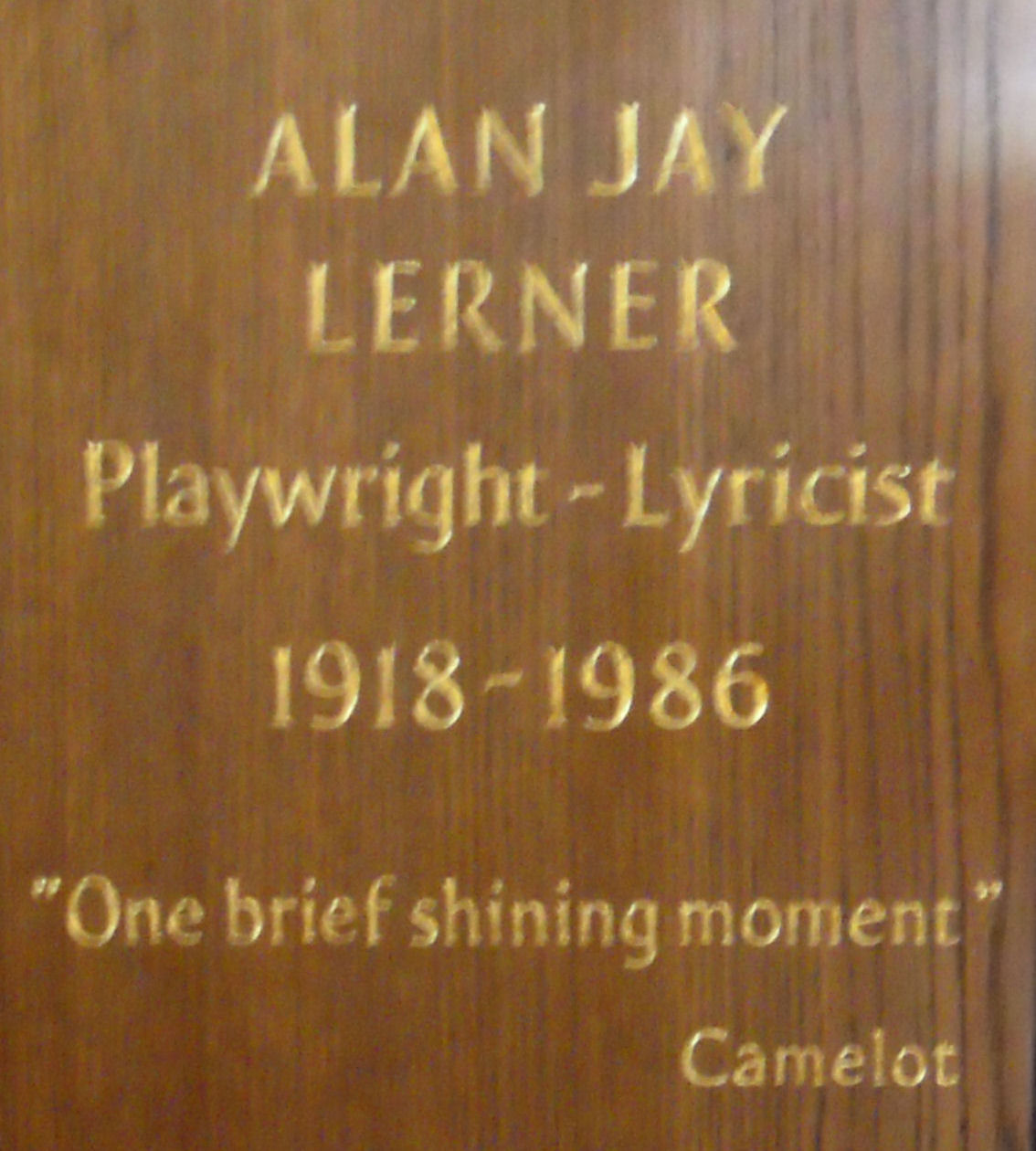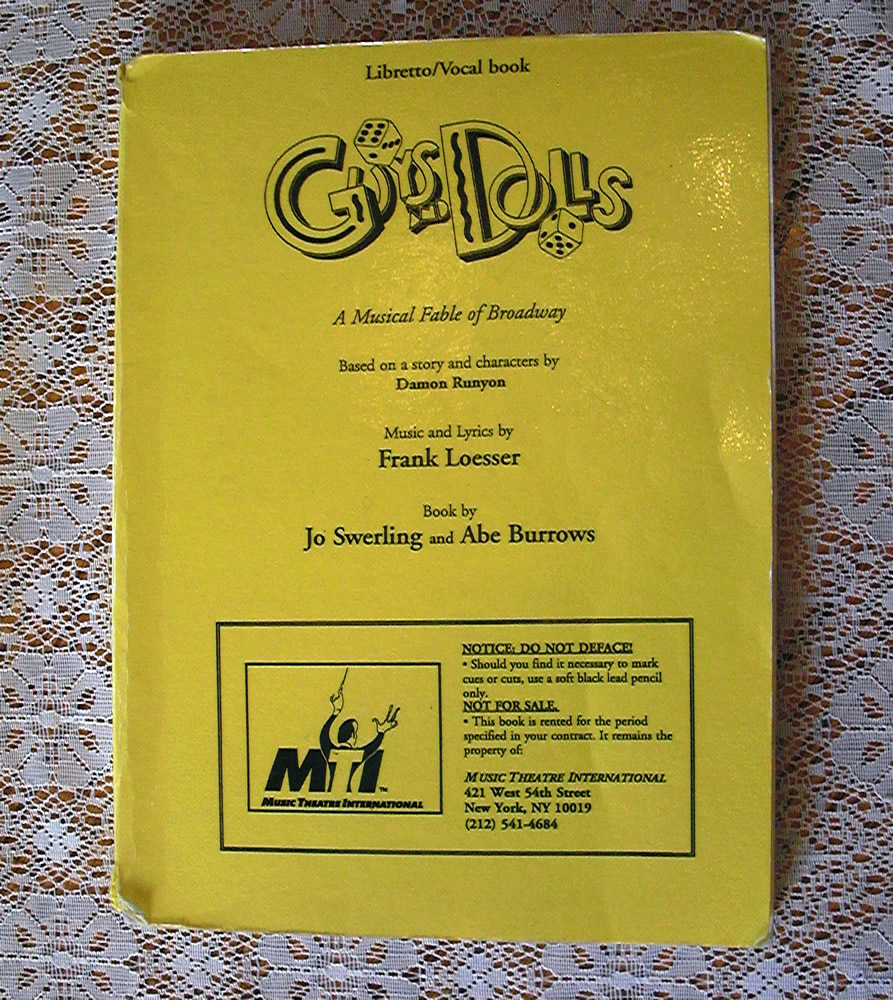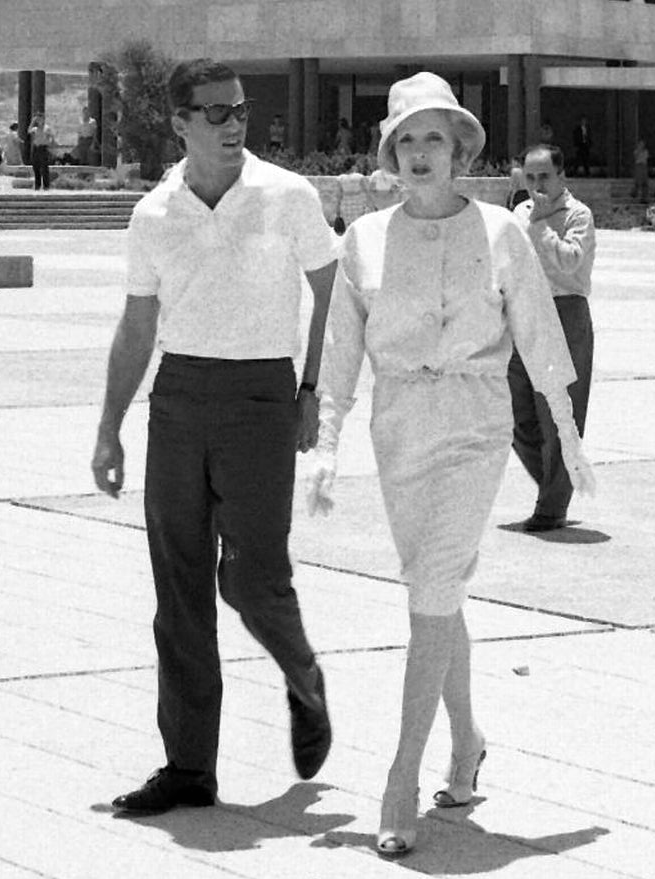|
The Sounds Of '66
''The Sounds of '66'' is a 1966 live album by Sammy Davis, Jr., accompanied by Buddy Rich and a big band. The album was recorded at the Sands Hotel on the Las Vegas Strip. Track listing Original LP Side A: # " Come Back to Me" ( Burton Lane, Alan Jay Lerner) – 2:56 # "I Know a Place" (Tony Hatch) – 2:27 # " What Did I Have That I Don't Have?" (Lane, Lerner) – 3:43 # "What the World Needs Now Is Love" ( Burt Bacharach, Hal David) – 3:05 # " Once in Love With Amy" (Frank Loesser) – 2:45 Side B: # "Ding-Dong! The Witch Is Dead" ( Harold Arlen, Yip Harburg) – 1:49 # "What Now My Love?" (Gilbert Bécaud, Pierre Delanoë, Carl Sigman) – 3:08 # "What Kind of Fool Am I?" (Leslie Bricusse, Anthony Newley) – 3:07 # "If It's the Last Thing I Do" (Sammy Cahn, Saul Chaplin) – 3:24 # "Please Don't Talk About Me When I'm Gone" (Sidney Clare, Sam H. Stept) – 3:18 CD re-issue # ''Introduction by Sammy Davis, Jr.'' # "Come Back to Me" ( Burton Lane, Alan Jay ... [...More Info...] [...Related Items...] OR: [Wikipedia] [Google] [Baidu] |
Sammy Davis, Jr
Samuel George Davis Jr. (December 8, 1925 – May 16, 1990) was an American singer, dancer, actor, comedian, film producer and television director. At age three, Davis began his career in vaudeville with his father Sammy Davis Sr. and the Will Mastin Trio, which toured nationally, and his film career began in 1933. After military service, Davis returned to the trio and became an overnight sensation following a nightclub performance at Ciro's (in West Hollywood) after the 1951 Academy Awards. With the trio, he became a recording artist. In 1954, at the age of 29, he lost his left eye in a car accident. Several years later, he converted to Judaism, finding commonalities between the oppression experienced by African-American and Jewish communities.Sammy Davis Jr. Biography Biography.com. Retrieved June 6, 2013.< ... [...More Info...] [...Related Items...] OR: [Wikipedia] [Google] [Baidu] |
Alan Jay Lerner
Alan Jay Lerner (August 31, 1918 – June 14, 1986) was an American lyricist and librettist. In collaboration with Frederick Loewe, and later Burton Lane, he created some of the world's most popular and enduring works of musical theatre both for the stage and on film. He won three Tony Awards and three Academy Awards, among other honors. Early life and education Born in New York City, he was the son of Edith Adelson Lerner and Joseph Jay Lerner, whose brother, Samuel Alexander Lerner, was founder and owner of the Lerner Stores, a chain of dress shops. One of Lerner's cousins was the radio comedian and television game show panelist Henry Morgan (comedian), Henry Morgan. Lerner was educated at Bedales School in England, Choate Rosemary Hall, The Choate School (now Choate Rosemary Hall) in Wallingford, Connecticut, (where he wrote "The Choate Marching Song") and Harvard University, Harvard. He attended both Camp Androscoggin and Camp Greylock. At both Choate and Harvard, Lerner ... [...More Info...] [...Related Items...] OR: [Wikipedia] [Google] [Baidu] |
Pierre Delanoë
Pierre Delanoë (16 December 1918 – 27 December 2006), born Pierre Charles Marcel Napoléon Leroyer in Paris, France, was a French lyricist who wrote thousands of songs for dozens of singers, including Dalida, Edith Piaf, Charles Aznavour, Petula Clark, Johnny Hallyday, Joe Dassin, Michel Sardou and Mireille Mathieu. Delanoë was his grandmother's maiden name. Career Following obtaining a law degree, Delanoë began a career as a tax collector, and later a tax inspector. After World War II, he met Gilbert Bécaud and began working as a lyricist. For a period, he even performed alongside Bécaud in clubs. They penned some of France's most beloved songs, including "Et maintenant", translated into English as " What Now My Love", which was covered by artists including Agnetha Fältskog, Elvis Presley, Frank Sinatra, Barbra Streisand, the Supremes, Sonny & Cher, Herb Alpert & the Tijuana Brass and the Temptations. "Je t'appartiens" (" Let It Be Me") was covered by the Everly Brothers ... [...More Info...] [...Related Items...] OR: [Wikipedia] [Google] [Baidu] |
Gilbert Bécaud
Gilbert Bécaud (, 24 October 1927 – 18 December 2001) was a French singer, composer, pianist and actor, known as "Monsieur 100,000 Volts" for his energetic performances. His best-known hits are "Nathalie" and "Et maintenant", a 1961 release that became an English language hit as " What Now My Love". He remained a popular artist for nearly fifty years, identifiable in his dark blue suits, with a white shirt and "lucky tie"; blue with white polka dots. When asked to explain his gift he said, "A flower doesn't understand botany." His favourite venue was the Paris Olympia under the management of Bruno Coquatrix. He debuted there in 1954 and headlined in 1955, attracting 6,000 on his first night, three times the capacity. On 13 November 1997, Bécaud was present for the re-opening of the venue after its reconstruction. Biography Born François Gilbert Léopold Silly in Toulon, France, Bécaud learned to play the piano at a young age, and then went to the Conservatoire de Nice. In ... [...More Info...] [...Related Items...] OR: [Wikipedia] [Google] [Baidu] |
What Now My Love?
"What Now, My Love?" is the English title of a popular song whose original French version, "Et maintenant" (English: "And Now") was written in 1961 by composer Gilbert Bécaud and lyricist Pierre Delanoë. The recurring musical pattern in the background is the Boléro by Ravel. English lyrics and the title were written by Carl Sigman. History Early English versions of the song were recorded by Jane Morgan, Shirley Bassey and Ben E. King. Shirley Bassey's Columbia Single peaked at #5 on the United Kingdom charts in 1962. Gilbert Bécaud's original version of this song topped the French chart in 1961. Director Claude Lelouch used the song at the climax of his 1974 film ''Toute une vie'', which led to it being released in America under the title ''And Now My Love''. US Top 40 covers include Sonny & Cher (#14 US, #13 UK) in 1966, Herb Alpert & the Tijuana Brass instrumentally in the same year, and Mitch Ryder the following year. Alpert's recording was nominated for the 1967 Grammy ... [...More Info...] [...Related Items...] OR: [Wikipedia] [Google] [Baidu] |
Yip Harburg
Edgar Yipsel Harburg (born Isidore Hochberg; April 8, 1896 – March 5, 1981) was an American popular song lyricist and librettist who worked with many well-known composers. He wrote the lyrics to the standards "Brother, Can You Spare a Dime?" (with Jay Gorney), " April in Paris", and "It's Only a Paper Moon", as well as all of the songs for the film '' The Wizard of Oz'', including " Over the Rainbow". He was known for the social commentary of his lyrics, as well as his leftist leanings. He championed racial and gender equality and union politics. He also was an ardent critic of religion. Early life and career Harburg, the youngest of four surviving children (out of ten), was born Isidore Hochberg on the Lower East Side of New York City on April 8, 1896.Yip Harburg: Biography from Answers.com Retrieved January 2, 2 ... [...More Info...] [...Related Items...] OR: [Wikipedia] [Google] [Baidu] |
Harold Arlen
Harold Arlen (born Hyman Arluck; February 15, 1905 – April 23, 1986) was an American composer of popular music, who composed over 500 songs, a number of which have become known worldwide. In addition to composing the songs for the 1939 film '' The Wizard of Oz'' (lyrics by Yip Harburg), including " Over the Rainbow", Arlen is a highly regarded contributor to the Great American Songbook. "Over the Rainbow" was voted the 20th century's No. 1 song by the RIAA and the NEA. Life and career Arlen was born in Buffalo, New York, the child of a Jewish cantor. His twin brother died the next day. He learned to play the piano as a youth, and formed a band as a young man. He achieved some local success as a pianist and singer before moving to New York City in his early twenties, where he worked as an accompanist in vaudeville and changed his name to Harold Arlen. Between 1926 and about 1934, Arlen appeared occasionally as a band vocalist on records by The Buffalodians, Red Nichols, Joe ... [...More Info...] [...Related Items...] OR: [Wikipedia] [Google] [Baidu] |
Ding-Dong! The Witch Is Dead
"Ding-Dong! The Witch Is Dead" is a song in the 1939 film '' The Wizard of Oz''. It is the centrepiece of several individual songs in an extended set-piece performed by the Munchkins, Glinda (Billie Burke) and Dorothy Gale. Highlighted by the Lollipop Guild consisting of Frankie Rumpf, Jaelen Hurst and Jesse-Carr was also sung by studio singers as being sung by the Winkie soldiers. It was composed by Harold Arlen, with the lyrics written by E. Y. Harburg. The group of songs celebrate the death of the Wicked Witch of the East when Dorothy's house is dropped on her by the tornado and the death of the Wicked Witch of the West after being splashed with water. In 2004 "Ding-Dong! The Witch is Dead" finished at #82 in AFI's 100 Years...100 Songs survey of the top tunes in American, cinema. In 2013, the song charted to #2 on the UK Singles Chart in the aftermath of the death of former Prime Minister Margaret Thatcher. Scenario The sequence starts with Glinda encouraging the fearful Mu ... [...More Info...] [...Related Items...] OR: [Wikipedia] [Google] [Baidu] |
Frank Loesser
Frank Henry Loesser (; June 29, 1910 – July 28, 1969) was an American songwriter who wrote the music and lyrics for the Broadway musicals ''Guys and Dolls'' and ''How to Succeed in Business Without Really Trying'', among others. He won a Tony Award for ''Guys and Dolls'' and shared the Pulitzer Prize for Drama for ''How to Succeed''. He also wrote songs for over 60 Hollywood films and Tin Pan Alley, many of which have become standards, and was nominated for five Academy Awards for best song, winning once for Baby, It's Cold Outside. Early years Frank Henry Loesser was born to a Jewish family in New York City to Henry Loesser, a pianist,Frank Loesser biography pbs.org, accessed December 5, 2008 and Julia Ehrlich. He grew up in a house on West 107th Street in M ... [...More Info...] [...Related Items...] OR: [Wikipedia] [Google] [Baidu] |
Where's Charley?
''Where's Charley?'' is a musical with music and lyrics by Frank Loesser and book by George Abbott. The story was based on the 1892 play ''Charley's Aunt'' by Brandon Thomas. The musical debuted on Broadway in 1948 and was revived on Broadway and in the West End. Ray Bolger starred, and sang the popular song "Once In Love With Amy". Plot ;Act I The setting is Oxford University in the year 1892 where a group of college seniors are bidding farewell to the years gone by ("The Years Before Us"). In his dorm room, graduating Jack Chesney is excitedly talking with his butler, Brassett, making sure that luncheon will be ready for later that afternoon. He is so excited because his roommate, Charley Wykeham, has gone to the train station to meet his aunt, Donna Lucia D'Alvadorez, who is coming in from Brazil for a visit. Having Charley's aunt there as chaperone will make it quite easy for their two girl friends, Kitty Verdun and Amy Spettigue, to come for a visit. Charley does return � ... [...More Info...] [...Related Items...] OR: [Wikipedia] [Google] [Baidu] |
Hal David
Harold Lane David (May 25, 1921 – September 1, 2012) was an American lyricist. He grew up in New York City. He was best known for his collaborations with composer Burt Bacharach and his association with Dionne Warwick. Early life David was born in New York City, a son of Austrian Jewish immigrants Lina (née Goldberg) and Gedalier David, who owned a delicatessen in New York. He is the younger brother of American lyricist and songwriter Mack David. Career David is credited with popular music lyrics, beginning in the 1940s with material written for bandleader Sammy Kaye and for Guy Lombardo. He worked with Morty Nevins of The Three Suns on four songs for the feature film ''Two Gals and a Guy'' (1951), starring Janis Paige and Robert Alda. In 1957, David met composer Burt Bacharach at Famous Music in the Brill Building in New York. The two teamed up and wrote their first hit " The Story of My Life", recorded by Marty Robbins in 1957. Subsequently, in the 1960s and early ... [...More Info...] [...Related Items...] OR: [Wikipedia] [Google] [Baidu] |
Burt Bacharach
Burt Freeman Bacharach ( ; born May 12, 1928) is an American composer, songwriter, record producer and pianist who composed hundreds of pop songs from the late 1950s through the 1980s, many in collaboration with lyricist Hal David. A six-time Grammy Award winner and three-time Academy Award winner, Bacharach's songs have been recorded by more than 1,000 different artists. , he had written 73 US and 52 UK Top 40 hits. He is considered one of the most important composers of 20th-century popular music. His music is characterized by unusual chord progressions, influenced by his background in jazz harmony, and uncommon selections of instruments for small orchestras. Most of Bacharach and David's hits were written specifically for and performed by Dionne Warwick but earlier associations (from 1957 to 1963) saw the composing duo work with Marty Robbins, Perry Como, Gene McDaniels and Jerry Butler. Following the initial success of these collaborations, Bacharach went on to write hits for ... [...More Info...] [...Related Items...] OR: [Wikipedia] [Google] [Baidu] |


